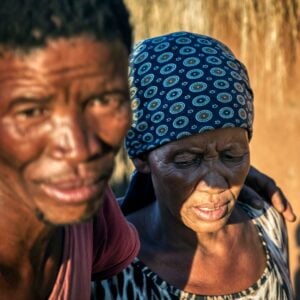The research note A Girl Can Dream: Analyzing Aspirations, Gender Norms, and Influencers Among Girls and Women in Mozambique explores the hopes and ambitions of adolescent girls and young women in Mozambique. It examines the barriers they face in pursuing their dreams, including social norms and relationships that shape their life choices, and provides insights for designing more effective gender equality programs by listening directly to the voices of girls and young women.
The study was conducted across 60 communities in Mozambique and included over 1,150 girls and young women from vulnerable households, alongside 300 community stakeholders. Using a combination of quantitative and qualitative methods, the research captures both the aspirations and the lived realities of young women’s lives.
Mozambican girls face a complex array of challenges, including low school completion rates, early marriage and pregnancy, limited access to quality jobs, and entrenched gender norms. While existing programs address some of these issues, efforts remain fragmented and unevenly distributed. This research provides a roadmap for more targeted and effective interventions to support girls’ empowerment.
Findings reveal that most girls aspire to complete secondary school, with some hoping to attend university, but financial hardship, lack of support, and restrictive gender norms often hinder these ambitions. Education programs must go beyond access to nurture ambition, build confidence, and involve families and communities. Employment aspirations are frequently misaligned with market realities, as many young women hope to work in education or health sectors that cannot absorb all demand, while few consider higher-paying, male-dominated sectors such as manufacturing or technology. Targeted career guidance, exposure to diverse job paths, and entrepreneurship support could help bridge this gap.
Traditional gender roles remain a powerful influence, with many girls believing that men should have more rights and that certain jobs are inappropriate for women. These beliefs are often reinforced by family and community expectations, though the study finds that communities are often more supportive of gender equality than girls perceive. Correcting these misperceptions could create new opportunities for empowerment.
Family members, particularly mothers, fathers, and spouses, play a central role in shaping girls’ decisions in Mozambique. For some girls, family members are powerful allies, while for others, they serve as significant gatekeepers. Empowerment programs must actively engage these key figures to help them become champions of change.
The study highlights that 90% of girls aspire to complete secondary school or higher, yet only a fraction achieve this goal. Rural girls face greater barriers, with 95% unable to achieve their desired education level, compared to 85% in urban areas. Employment aspirations focus mainly on education, health, or public service roles, with 80% of girls citing financial constraints as the primary barrier to education. Mothers are identified as the most influential figures for unmarried girls, and many girls underestimate the level of community support for gender equality.
This research note is part of a series produced by the East Africa Girls’ Empowerment and Resilience (EAGER) Evidence Hub, a World Bank regional program that seeks to increase educational attainment, labor earnings, and decision-making power among girls and women in East and Southern Africa. The Evidence Hub aims to generate new evidence on effective empowerment strategies and promote knowledge sharing to support the EAGER program.







